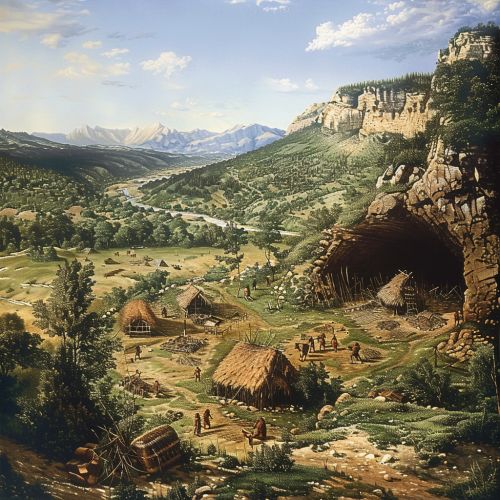Archaic Period
Introduction
The Archaic Period, also known as the "Old Stone Age", is a period in human history that dates back to around 8000 BC and concludes at the start of the Neolithic era (around 3000 BC). This period is characterized by the development of early human societies, the invention of basic tools, and the establishment of the earliest forms of art and religion. It is a significant era in the study of anthropology and archaeology, as it provides insights into the early stages of human civilization.

Prehistoric Societies
During the Archaic Period, human societies were primarily hunter-gatherers. They relied on hunting, fishing, and gathering wild plants for sustenance. These societies were often small, typically consisting of 20 to 50 people, and were usually nomadic, moving from place to place in search of food and resources. The social structure was likely egalitarian, with no clear hierarchy or class system. The concept of private property was also likely non-existent during this period.
Technological Developments
The Archaic Period saw the invention of basic tools made from stone, bone, and wood. These tools were used for a variety of purposes, including hunting, food preparation, and construction. The most common tools were simple hand axes, scrapers, and spears. The development of these tools marked a significant advancement in human technology and greatly improved the efficiency and effectiveness of hunting and gathering activities.
Art and Religion
The Archaic Period also saw the emergence of the earliest forms of art and religion. Cave paintings, petroglyphs, and sculptures made from stone and bone are some of the earliest known forms of human artistic expression. These works of art often depicted animals, humans, and abstract symbols, and are believed to have held religious or spiritual significance. The development of art and religion during this period reflects the increasing complexity of human thought and culture.
Conclusion
The Archaic Period was a pivotal era in human history. It laid the foundation for the development of complex societies and civilizations. The technological innovations, artistic expressions, and religious beliefs that emerged during this period have had a profound impact on the course of human history.
